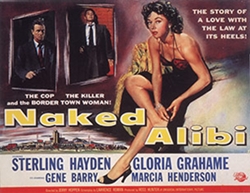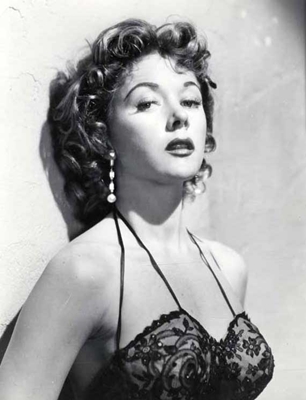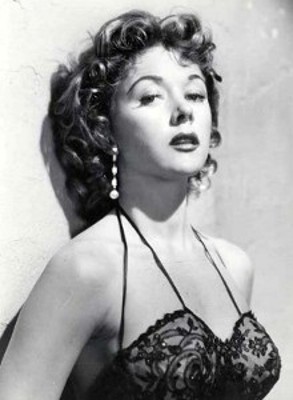I finally got to see Gloria Grahame vamping it up in “Naked Alibi” (1954) on Saturday night at the American Cinematheque’s Noir City Hollywood film fest, now in its 14th year. Grahame is one of my fave femme fatales and this film is hard to find, let alone see on the big screen – the new 35 mm print was introduced by fest organizers and noir experts Eddie Muller and Alan K. Rode.
Co-starring Gene Barry as Grahame’s gangster boyfriend and Sterling Hayden as a vigilante cop, “Naked” certainly has a great cast and a great name. Unfortunately, though, Jerry Hopper is not a great or even a good director. This film reminds of me Grahame playing similar roles in far better movies (“The Big Heat,” “Human Desire,” “In a Lonely Place,” “Sudden Fear”). Still, I always have a good time watching this ultimate good-time girl.
As part of a tribute night to Hayden, “Naked” was paired with 1954’s “Suddenly,” in which Hayden plays a sheriff opposite Frank Sinatra as a psycho leading a plot to assassinate the president. Directed by Lewis Allen and written by Richard Sale, “Suddenly” has been hard to see until now because Sinatra did his best to buy all copies of this film after John F. Kennedy’s death. This digital restoration by Lobster Films featured crisp contrast, though there were many patches of white that looked iridescent. (Apparently, this was a problem with the projection, not the print.) It’s interesting as a B-movie rarity with Hayden letting a malevolent Sinatra steal the show.
The fest continues through May 6 at the Egyptian Theatre in Hollywood.













From FNB readers